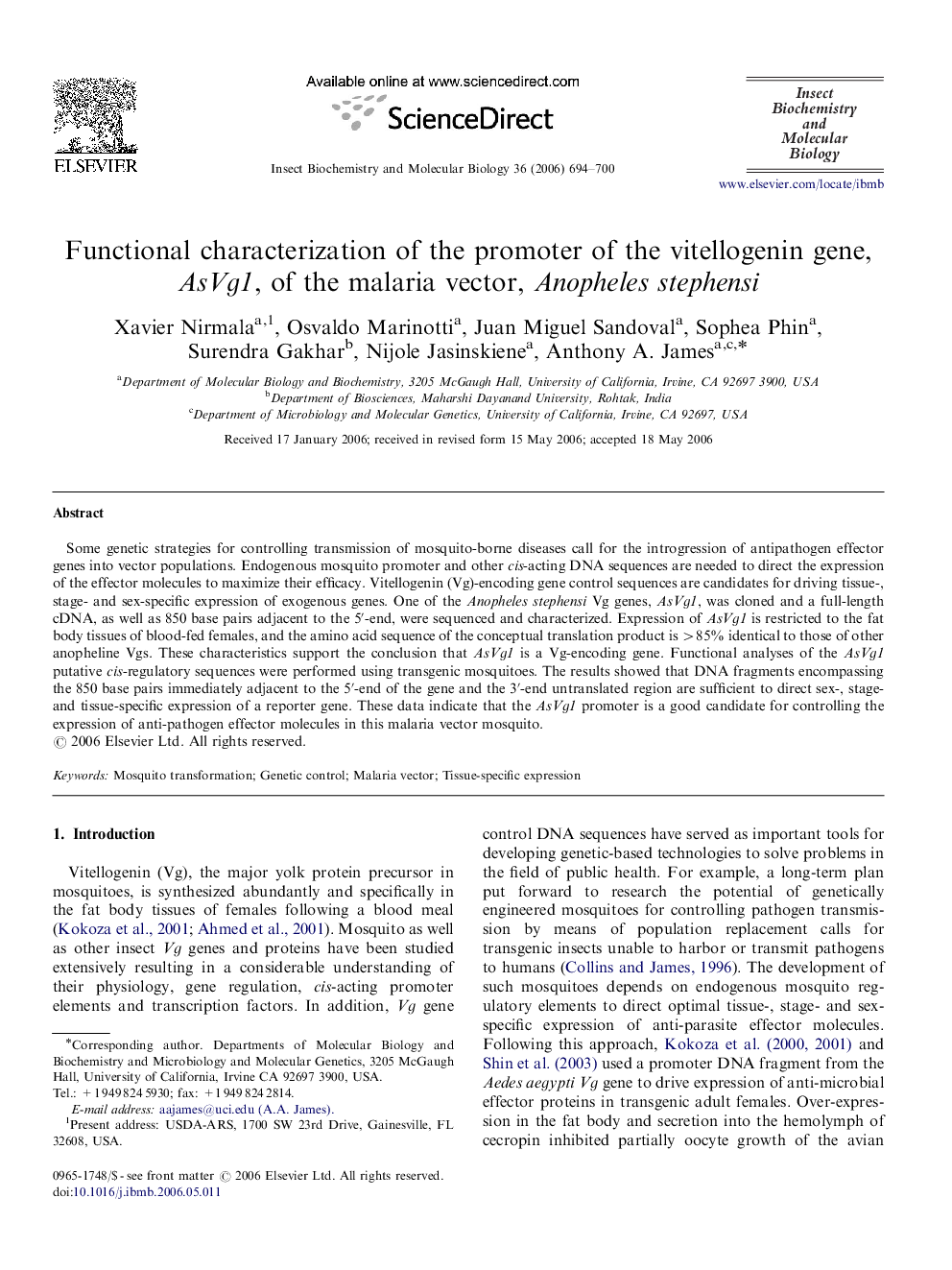| کد مقاله | کد نشریه | سال انتشار | مقاله انگلیسی | نسخه تمام متن |
|---|---|---|---|---|
| 1983134 | 1062345 | 2006 | 7 صفحه PDF | دانلود رایگان |

Some genetic strategies for controlling transmission of mosquito-borne diseases call for the introgression of antipathogen effector genes into vector populations. Endogenous mosquito promoter and other cis-acting DNA sequences are needed to direct the expression of the effector molecules to maximize their efficacy. Vitellogenin (Vg)-encoding gene control sequences are candidates for driving tissue-, stage- and sex-specific expression of exogenous genes. One of the Anopheles stephensi Vg genes, AsVg1, was cloned and a full-length cDNA, as well as 850 base pairs adjacent to the 5′-end, were sequenced and characterized. Expression of AsVg1 is restricted to the fat body tissues of blood-fed females, and the amino acid sequence of the conceptual translation product is >85% identical to those of other anopheline Vgs. These characteristics support the conclusion that AsVg1 is a Vg-encoding gene. Functional analyses of the AsVg1 putative cis-regulatory sequences were performed using transgenic mosquitoes. The results showed that DNA fragments encompassing the 850 base pairs immediately adjacent to the 5′-end of the gene and the 3′-end untranslated region are sufficient to direct sex-, stage- and tissue-specific expression of a reporter gene. These data indicate that the AsVg1 promoter is a good candidate for controlling the expression of anti-pathogen effector molecules in this malaria vector mosquito.
Journal: Insect Biochemistry and Molecular Biology - Volume 36, Issue 9, September 2006, Pages 694–700